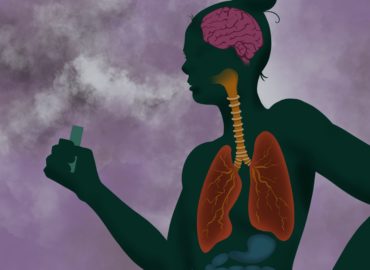|
Getting your Trinity Audio player ready...
|
Vaping has become a popular alternative to smoking, often perceived as a safer option. However, a closer look reveals that vaping poses its own set of health risks.
E-liquids used in e-cigarettes typically contain nicotine, which is highly addictive and can impair brain development in adolescents, leading to long-term dependence. Additionally, the chemicals in vape juice, such as propylene glycol and glycerin, produce harmful byproducts when heated, including potentially toxic compounds like formaldehyde and acetaldehyde.
Inhaling vapor can also irritate the lungs and airways, leading to respiratory issues such as “vaping-associated lung injury,” characterized by severe breathing problems and other symptoms. Furthermore, vaping has been linked to increased heart rate and blood pressure, raising concerns about its potential impact on cardiovascular health.
While vaping is generally less harmful than smoking traditional cigarettes, its long-term effects are still not fully understood. Ongoing research is crucial to uncover the full extent of its health impacts. In the meantime, understanding these risks is essential for making informed choices about vaping and personal health.


